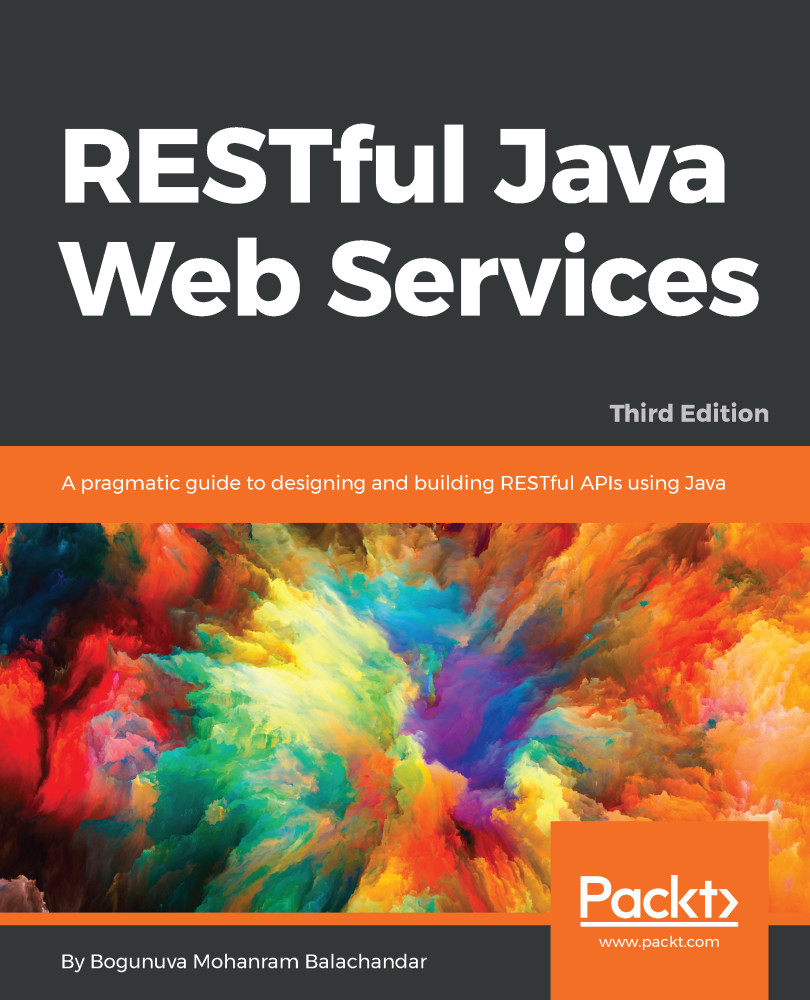While injecting variable values from the URI path and query parameter into the resource class or while mapping the request-response entity body with Java types, the JAX-RS runtime follows certain rules for the Java types present in the resource class. We will discuss this topic in this section.
-
Book Overview & Buying

-
Table Of Contents
-
Feedback & Rating

RESTful Java Web Services - Third Edition
By :

RESTful Java Web Services
By:
Overview of this book
Representational State Transfer (REST) is a simple yet powerful software architecture style to create lightweight and scalable web services. The RESTful web services use HTTP as the transport protocol and can use any message formats, including XML, JSON(widely used), CSV, and many more, which makes it easily inter-operable across different languages and platforms.
This successful book is currently in its 3rd edition and has been used by thousands of developers. It serves as an excellent guide for developing RESTful web services in Java.
This book attempts to familiarize the reader with the concepts of REST. It is a pragmatic guide for designing and developing web services using Java APIs for real-life use cases following best practices and for learning to secure REST APIs using OAuth and JWT. Finally, you will learn the role of RESTful web services for future technological advances, be it cloud, IoT or social media.
By the end of this book, you will be able to efficiently build robust, scalable, and secure RESTful web services using Java APIs.
Table of Contents (11 chapters)
Preface
 Free Chapter
Free Chapter
Introducing the REST Architectural Style
Java APIs for JSON Processing
Introducing the JAX-RS API
Advanced Features in the JAX-RS APIs
Introducing JAX-RS Implementation Framework Extensions
Securing RESTful Web Services
Description and Discovery of RESTful Web Services
RESTful API Design Guidelines
The Role of RESTful APIs in Emerging Technologies
Customer Reviews

